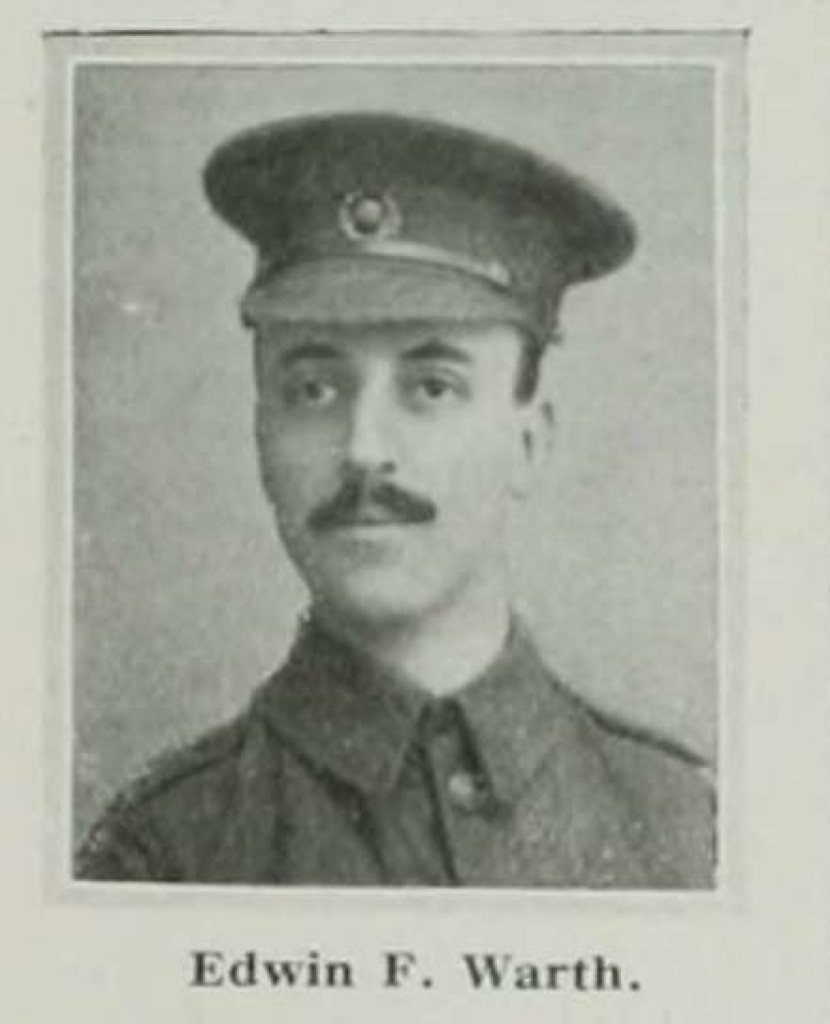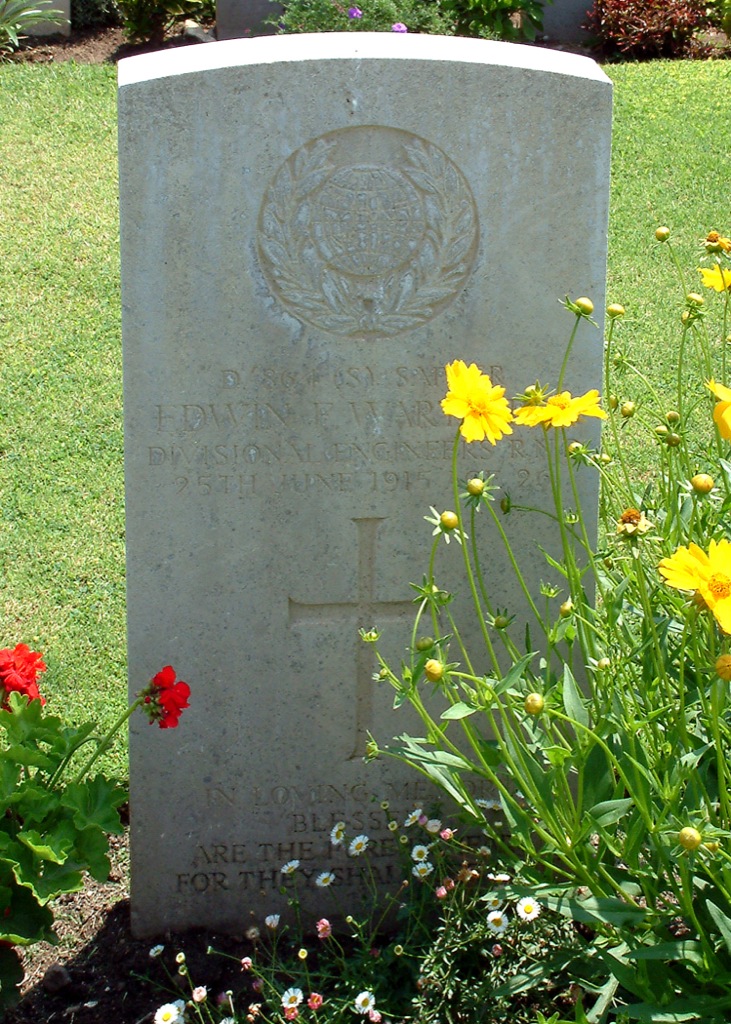Edwin Frederick Warth, born in India on 12th August 1888, was admitted to King Edward’s School in January 1900. He lived with his father, Hugo, Deputy Superintendent of the Geological Survey of India, his mother, Emma, and his seven siblings, moving house several times during his School career; his School Record Card states his address as 30, Park Road, Moseley.
Edwin was in the Fourth Class of the Classical School, studying a primarily classical, rather than scientific, curriculum. He was just below average overall in his class, though the School Lists show that he was “not placed” in any of his subjects in his final year at KES. Edwin was a capable gymnast, coming 1st in November 1903, working “neatly and carefully throughout the competition”, and winning proxime (second place) in July 1904.
After leaving School, Edwin studied Civil Engineering at the University of Birmingham from 1905 to 1910, graduating with First Class Honours. He then gained practical experience under Messrs. E. Nuttall and Company, contractors, working on the construction of a pipe line from Thirlmere for the Manchester Water Supply. After being elected an Associate Member of the Institute of Civil Engineers on 13th January 1914, he went to Las Palmas as an assistant engineer on the waterworks survey, relinquishing this appointment on the outbreak of war. He had to undergo an operation before he could offer himself for military service and did not reach England until November that year.
Having been a member of the Officer Training Corps at the University of Birmingham for five years, Edwin applied for a commission and was gazetted as a Second Lieutenant on 24th March 1915. However, he was unable to take up his commission as he had enlisted as a Sapper in the 1st Field Company, Royal Naval Division whilst waiting for the commission to come through and had already left for the Dardanelles. He was wounded in action in the Gallipoli Peninsula on 16th May 1915 and died, aged twenty-six, in hospital at Alexandria a month later on 25th June. He was buried at Alexandria (Chatby) Military Cemetery, where his father requested that the inscription on his headstone should read: “In Loving Memory, “Blessed are the pure in heart, for they shall see God””. Edwin left his estate of £572 to his father, Hugo.



 Military Cemetery.JPG)
